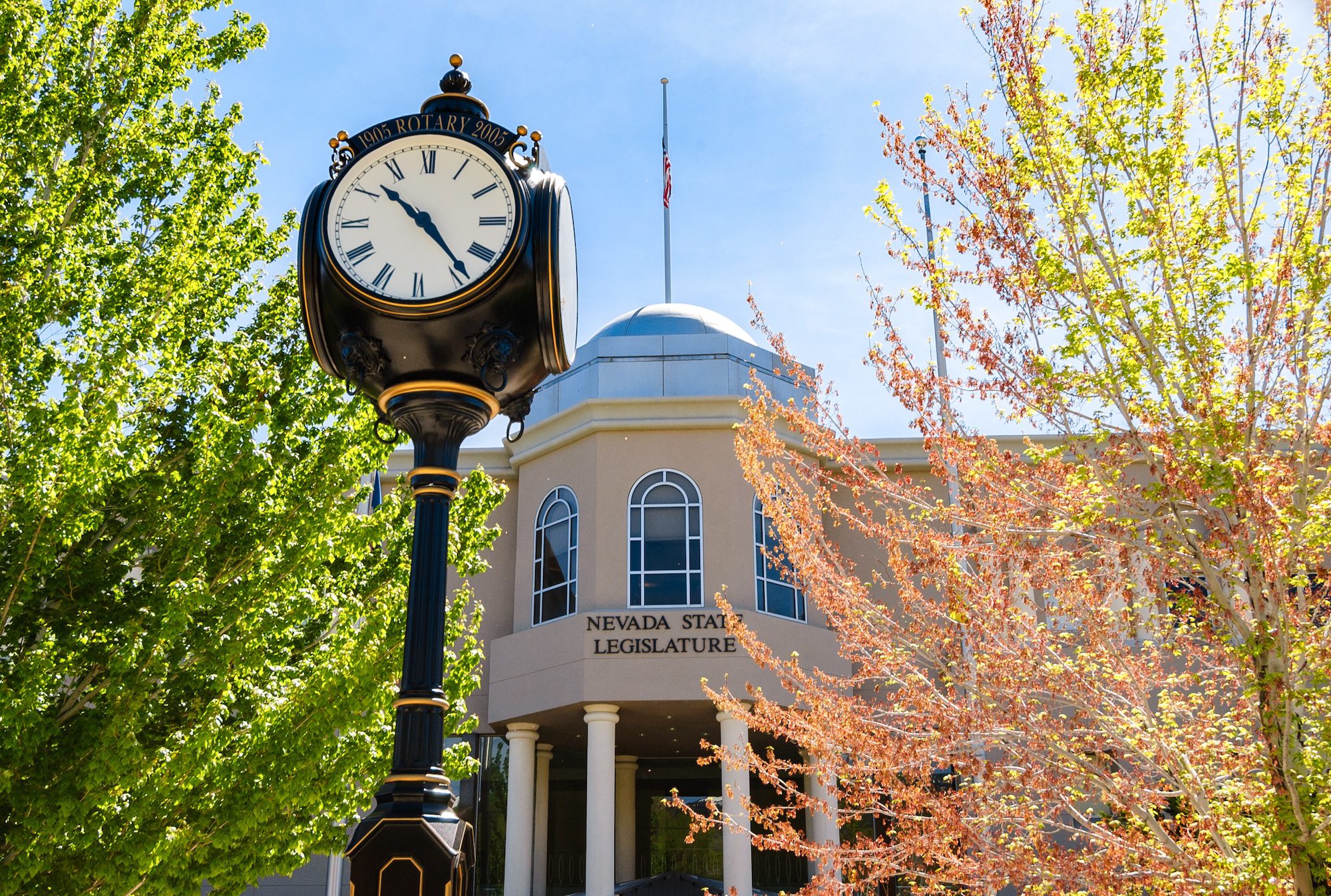One of the worst consequences of former Governor Steve Sisolak’s tenure was the expansion of collective bargaining to state employees in 2019 through Senate Bill 135 (SB 135). But that’s the power the Governors wield.
In what could be considered a surprising turn of events, Governor Joe Lombardo vetoed Assembly Bill 224 (AB 224), the logical next step in this effort to expand collective bargaining. In fact, Lombardo issued a record-setting 75 vetoes during the 82nd Legislative Session of the Nevada State Legislature.
These vetoes impact Nevadans’ everyday lives and knowing about them can better prepare you to participate in the democratic process. This article is a non-political guide to understanding the governor’s veto of AB 224. It aims to empower you with the information needed to make informed decisions and act.
Find out how below!
But first, let’s learn about AB 224, why the governor vetoed the bill, and how it could impact you and your family.
What is AB 224?
AB 224 aimed to extend collective bargaining rights to Nevada’s System of Higher Education, the only group still missing it. The bill would allow a government board, rather than employers, the ability to oversee related disputes. Implementing such a bill puts the government where they don’t belong: in the business of entities that have the authority to govern themselves.
In a bold move aimed at safeguarding Nevada’s fiscal future, Gov. Lombardo vetoed AB 224, effectively halting what critics argue would have exacerbated the state’s financial strain. The bill, backed by the Assembly Democratic Caucus and staunchly supported by government unions, sought to expand collective bargaining rights for public sector workers—a decision with far-reaching implications for taxpayers.
Why Gov. Lombardo Vetoed AB224
Much of the debate surrounding AB 224 centered on the role of unions in government and their impact on public spending. Proponents of the bill, echoing sentiments of balancing power in the free market system, drew parallels to Adam Smith’s theories on market equilibrium.
Analogously, imagine a household where family members negotiate chores and allowances. AB224 would have given government unions more say in how taxpayer money is allocated for state employee compensation, like children having more influence over household spending.
The veto of AB 224 underscores Gov. Lombardo’s stance against what he perceives as unchecked demands from government unions fueled by political incentives rather than fiscal prudence. Citing data that Nevada state workers already receive compensation packages surpassing market rates—even ranking among the highest nationwide—the governor highlighted the disparity between public and private sector earnings.

For instance, once adjusted for state-specific price differences, Nevada’s state workers emerge as the fifth most generously compensated nationwide. When you compare these figures against private-sector compensation in Nevada, they ranked second highest in the U.S., thanks to a 29 percent wage disparity favoring Nevada’s state workers over their private-sector peers.
“Before the implementation of collective bargaining in 2019, Nevada’s public sector compensation was already disproportionately high,” Gov. Lombardo emphasized. “The veto of AB 224 is a decisive step to prevent further escalation of taxpayer burdens and restore fiscal responsibility.”
Nevada Politics and the Unions
Furthermore, the influence of unions in Nevada politics cannot be understated. A substantial portion of campaign contributions are directed toward Democratic lawmakers, raising concerns about objective negotiations on behalf of taxpayers.
Unions were the most significant donors during the 2022 election cycle, with nearly 96 percent of those funds (more than $1.4 million) backing Democratic lawmakers. Does anyone really believe Democrats would have objective negotiations on behalf of taxpayers with the very unions who own them?
The governor explained that allowing unions more control over government spending without corresponding revenue increases could lead to higher taxes or reduced services for Nevadans. He pointed out that previous expansions of collective bargaining had already pushed state worker compensation to levels far above what most private sector employees earn.
Why the Veto of AB 224 Matters
The veto of AB 224 is crucial for maintaining fiscal responsibility and transparency in government operations. By rejecting the bill, Lombardo aims to prevent further escalating taxpayer costs and ensure that public funds are allocated prudently. This decision safeguards against undue influence from special interest groups and a commitment to fair governance for all Nevadans.
The veto carries significant implications for Nevada’s economic landscape and governance principles. It reinforces the importance of market-based incentives in public sector decision-making and underscores the governor’s commitment to fiscal discipline. Overturning the veto could lead to increased public spending, higher taxes, or both, potentially stifling economic growth and undermining taxpayer trust in government stewardship.

Nevadans are encouraged to actively engage in supporting the governor’s vetoes, urging elected officials to uphold these decisions in the best interest of the state’s long-term economic stability and prosperity.
We urge Nevadans to support Governor Lombardo’s vetoes through Nevada Policy’s Action Center. Contact your elected representatives to emphasize the importance of fiscal discipline and transparency in government decisions. We can ensure that Nevada continues responsible governance that benefits all its citizens.
